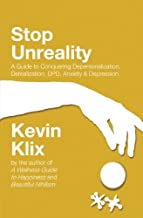Depersonalization Disorder
Depersonalization/derealization disorder is a type of dissociative disorder that consists of persistent or recurrent feelings of being detached (dissociated) from one’s body or mental processes, usually with a feeling of being an outside observer of one’s life (depersonalization), or of being detached from one’s surroundings (derealization). The disorder is often triggered by severe stress. Diagnosis is based on symptoms after other possible causes are ruled out. Treatment consists of psychotherapy plus drug therapy for any comorbid depression and/or anxiety.
Cluster Number:
Wiki Number: 57
Diagnosis: Depersonalization Disorder
US Patients: 20% with head injuries
World Patients:
Sex Ratio: M;W3
Age Onset:
Brain Area: more cortisol after stress; neurological diseases of the brain;
Symptoms: feel like an observer of the self; the “self” seems to be someone else;
Progression: coping mechanism for high stress or PTSD;
Causes: trauma; withdrawal from recreational drugs; benzodiazepine dependence;
Medications: naloxone
Therapies:
Youtube Video: Depersonalization: How Do I Know If I Have It?
Amazon or Library Book: Stop Unreality
Click the book to link or order from Amazon.

